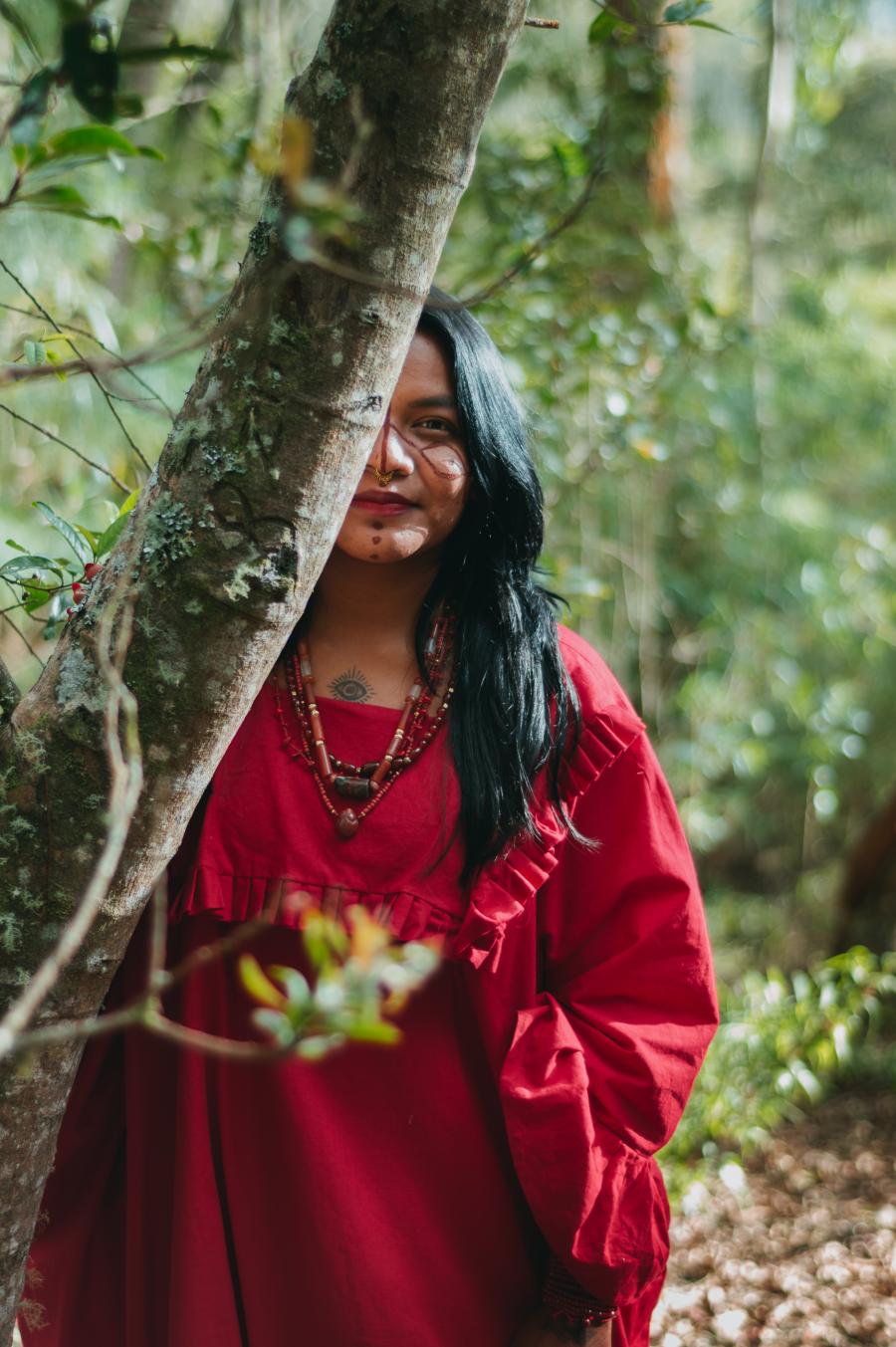In Hungry Lightning, we journey with Pei-Lin Yu and researcher Dr. Russell Greaves away from our familiar world of "civilization" to the completely unfamiliar world of the savanna Pumé of Venezuela. The Pumaé live in small nomadic communities, shifting location according to the season. Yu and Greaves spent two years in Doro Aná, a traditional savanna Pumé community, collecting quantified data on Pumé subsistence, mobility and technology.
Contrary to the title's suggestion, these notes of a woman anthropologist are presented as a chronological narrative, written in simple, rich and evocative language. The beauty of Yu's observations is that as she adapts, learns, and grows, so does the reader. We feel the initial surrealism of being linguistically adrift in a new culture, the joy of acceptance into the Pumé community, the pinch of hunger pangs during the wet season, the thrill of hunting for food, the terror of assisting in a precarious childbirth, and the grief and frustration of preventable deaths. Ultimately, readers share Yu's heartbreak as she leaves the Pumé, wondering if she will ever return.
This book is a richly woven piece, composed of many layers, making it ideal reading for everyone. At first glance, it is a beautifully told story, the perfect book for curling up with and becoming immersed in. On second glance, it is a book as suited to a classroom as to a living room. Yu threads details on modes of collecting data, analyses of that data, interesting material on the Pumé way of life and other pertinent facts through the text with such subtlety that the absorption of the material is realized only after putting the book down.
What becomes apparent reading the book is that the Pumé exist in a difficult twilight between traditional living and "civilization." It seems obvious that the Venezuelan government should intervene to provide an adequate standard of living, ensuring the Pumé have access to medicine to prevent deaths from infected insect bites, training in childbirth, and rectifying the fact that approximately 73% of Venezuelan indigenous people have no tenure to the land they live on. It also becomes obvious that many problems stem from ill-considered government action, such as granting ranchers title to traditional Pumé land, and attempting to designate adjacent lands as a national park on which the Pumé could live, but only if they agreed to forgo new technologies and developments. These actions are severely depleting the amount of land available to the Pumé for traditional subsistence, and keeping the Pumé from blending their traditional culture with what they need from "civilization."
Yu does not posit a solution to this conundrum, or to many of the other issues facing the Pumé, but this is not the point of her book. The central purpose of the book is to describe the Pumé way of life and to make readers aware of the issues before the Pumé. Yu achieves this with unassuming realism and attention to detail, drawing readers into the Pumé's world, in which disease and hunger are never far away. It is almost as if Yu is throwing down a gauntlet by describing her experiences in Doro Aná. One entry, written just before leaving for her North American home, reads: "I worry about which of the old Mothers and old Fathers will be gone when I come back." Given the circumstances under which the Pumé are living -- specifically the lack of medical care and land tenure -- readers are prodded into asking too how many of the Pumé and how much of their traditional life will be left when Yu returns. This, then, is Yu's challenge: How can we, in our own world, help the Pumé live in the way they choose?
Article copyright Cultural Survival, Inc.

